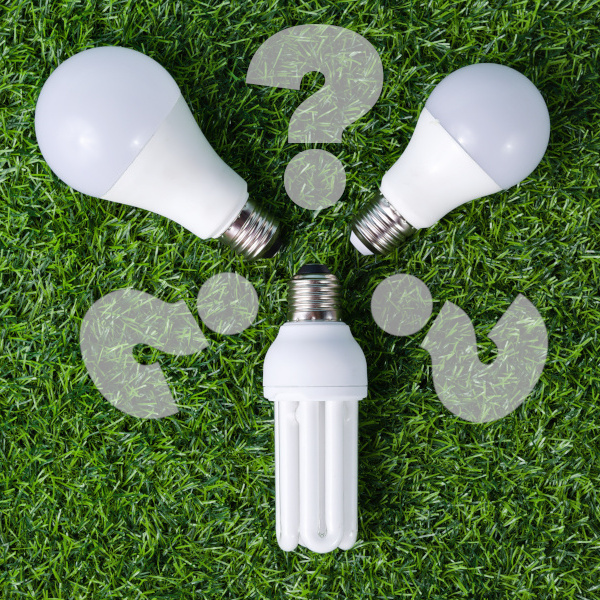
All lighting is NOT created equal. The following tips can help you light your home efficiently and safely, saving energy and money:
When purchasing new lighting fixtures or bulbs, look for the Energy Star label. These are the most energy efficient models on the market and will save energy, money, and help the environment.
Replace incandescent lightbulbs. Compact fluorescent (CFL) bulbs and even more energy-efficient light-emitting diode (LED) bulbs use much less power and last for years longer than incandescent bulbs. CFL and LED bulbs may be a little more expensive to purchase but will provide substantial energy savings over their extended lifespans.
When purchasing bulbs, shop for lumens, not watts. Lumens are a measurement of the amount of light that a bulb can provide. For more information on lumens, visit this page on the Energy.gov website.
Turn off lights; this energy saving measure has been around since Edison first turned a light on, and it's as effective as ever. An incandescent bulb kept on 24 hours per day can cost as much as $70.00 each year.
Install switchplate motion sensors that turn lights off automatically when everyone leaves a room.
Invest in a timer. Timers that automatically turn lights on and off can reduce your energy use and at the same time increase safety by making a house seem occupied even when people are away.
Keep fixtures and bulbs clean. Dirt, besides being unsightly, can block or absorb up to 50% of the light.
Don't skimp on bulbs. The money you spend on light bulbs is probably only 5-10% of the total cost of lighting. The other 90-95% is the cost of electricity to run those bulbs. Look for more efficient light bulbs rather than cheaper ones.
Light colored walls and surfaces reflect light while dark colors absorb light. The same light fixture in two different rooms will provide different levels of light on a reading surface. Consider this when choosing paint colors for a room.
Shades matter. Translucent lamp shades provide more light to a room than solid colored shades.
When unplugging lamps or lights, always pull on the plug and not the cord. Over time, pulling on the cord will damage the wiring inside and create a hazard.
Keep lights off during the day. Use daylight whenever possible, rather than turning on overhead lighting.